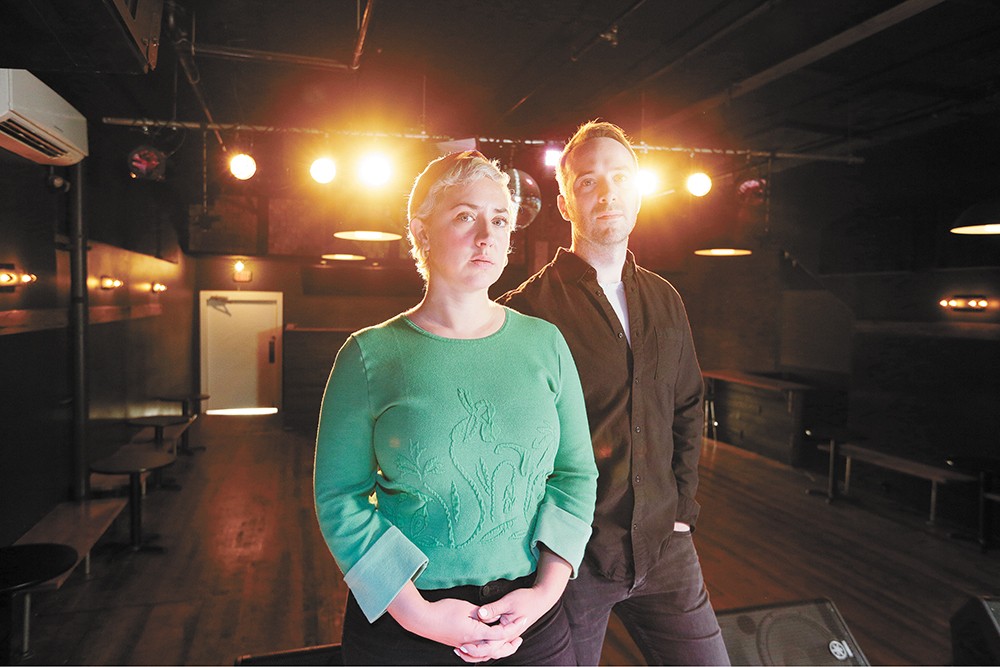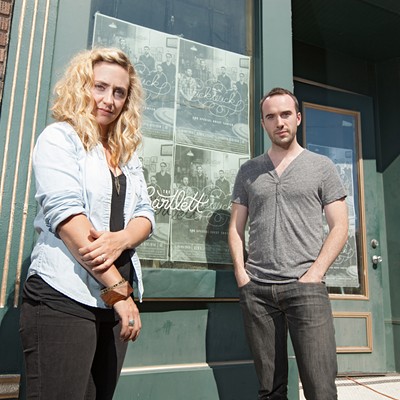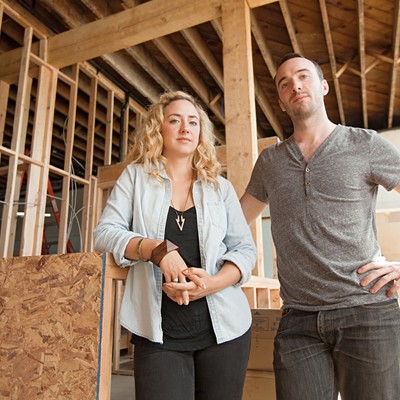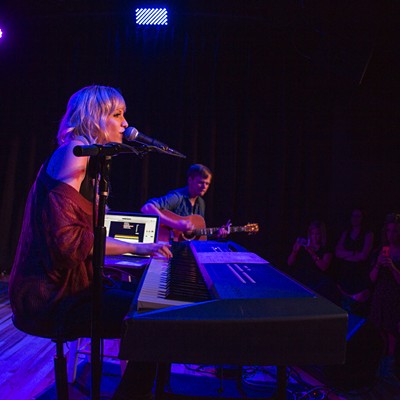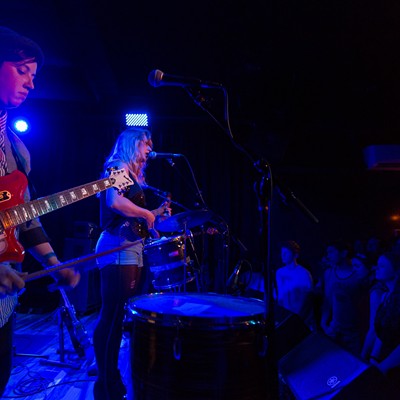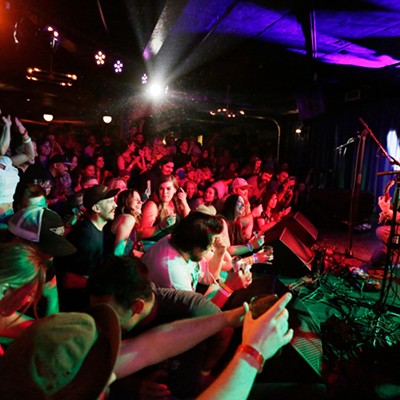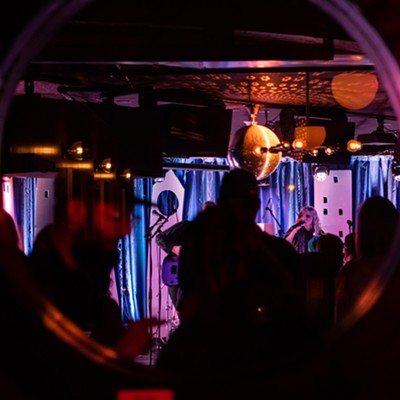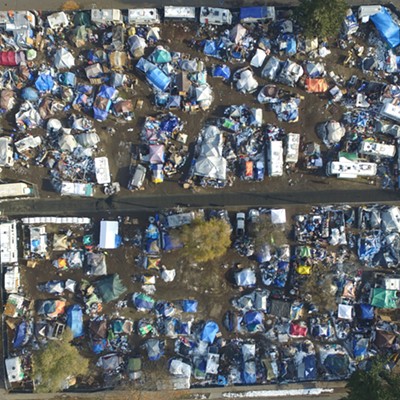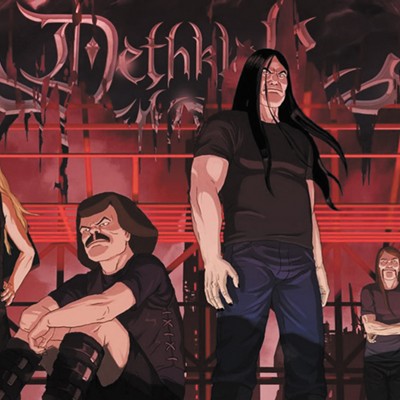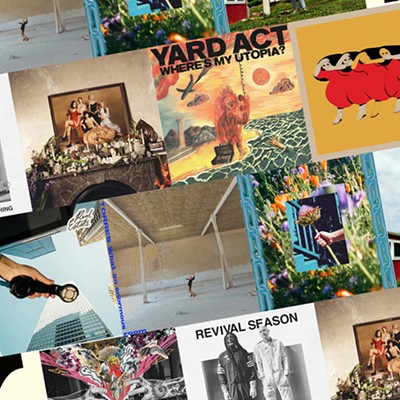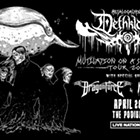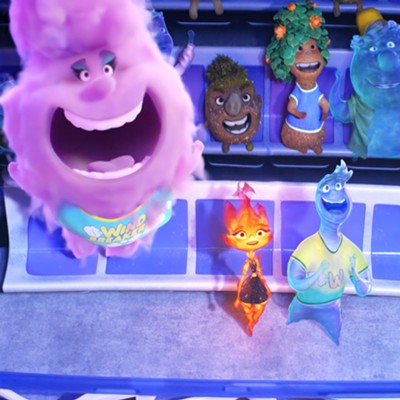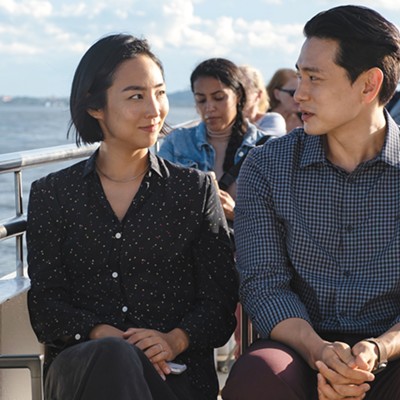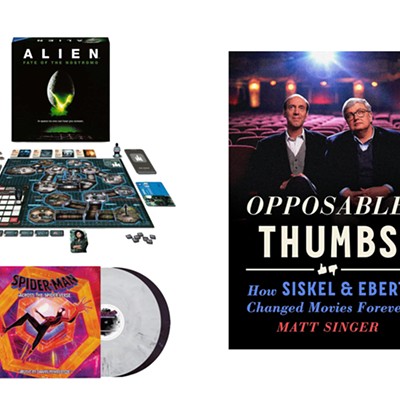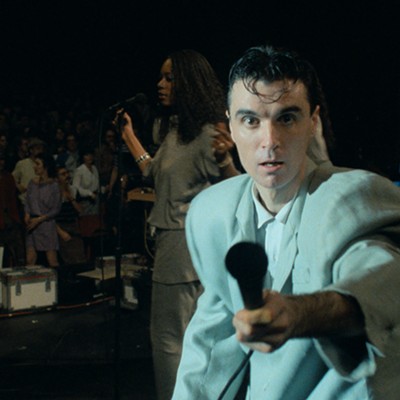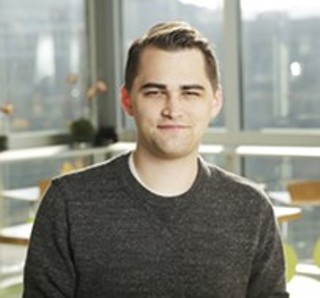When Karli and Caleb Ingersoll announced in September that they were closing the Bartlett, the all-ages music venue they opened in late 2013, it was sort of a long time coming. Yes, it was a difficult decision. It was also an inevitability.
Each of them had proposed it at different times in the last couple years, only to have the other shoot it down. But for whatever reason, they finally found themselves on the same page, and took to Facebook to announce the closure.
"The only explanation we can give," they wrote, "is that it's time for us to move on."
A month later, the Ingersolls are sitting in an orange vinyl booth in their other business venture — the Browne's Addition nightlife spot Lucky You Lounge — and preparing for the Bartlett's final shows. They talk about the venue with the bittersweet wistfulness of someone who has just called it quits on a long, tumultuous romance: They're sad to see it end, but end it must.
Both Karli and Caleb had been musicians within the local scene for years by the time they launched the Bartlett, envisioning it as the space they'd most like to play themselves. It hasn't been a money-making venture for either of them — they estimate they've taken $15,000 in paychecks in nearly six years — but they say they've kept it open through a combination of personal stubbornness and a genuine affection for the space.
And so it has been a love-hate relationship, because the Bartlett is really a case of unavoidable in-betweens. Consider that the venue needed to be full most nights a week in order to break even financially, but that required more hands-on help than was affordable. Throwing too many shows, however, has a tendency to oversaturate the market, which meant that some concerts would only draw audiences of 20 or fewer.
"It's always been a weird middle ground — the more we do, the more it costs," Caleb says. "And so there's a point where it doesn't really matter."
"We always had a hard time finding that sweet spot," Karli says. "We love the Bartlett, but it is an enormous amount of work. Daily upkeep is busier and more intense than this." She's referring to Lucky You, which has already settled into a comfortable groove since opening in May. The food menu has been successful, the stage has been graced by rock vets like Son Volt and Mudhoney, the basement bar hosts popular DJ sets on weekends and the weekly trivia nights have found an audience. Once the Bartlett shutters, all the Ingersolls' focus will turn here.
"It's endless amounts of potential, which is awesome and also kind of scary at the same time," Karli says. "But we have a lot of time to figure out what works."
So if they could go back, what would they do differently with the Bartlett?
Rob Kolar of California rock duo Kolars
"It's kind of everything you want out of a small club venue. Some venues feel like you're on a conveyor belt. The production staff treats the band like a commodity. Music is about the community and the expression and the art. When venues start stripping that away, it takes the fun out of it. The Bartlett always maintained that authentic artistic mindset, which is really cool."
Local hip-hop artist Devonte Pearson, aka T.S the Solution
"The Bartlett was the example of how to take care of artists at every level. They provided an intimate setting, quality sound and a fun environment. They set the bar high for other venues; [they] made those who performed there feel like upper echelon. I'm thankful to be a part of their story."
Jessica Dobson of Deep Sea Diver
"Karli and Caleb are also musicians, and they have that perfect combination of understanding how to create a really warm business environment. Obviously, you need to make money to keep things going, but there are venues in the country that go either of two ways — they're artist-friendly, or not artist-friendly. The artist-friendly venues are the ones where you can tell someone there has been involved with music before, and they're looking for those extra details. They wouldn't have opened another venue if they didn't love it, and I think they've learned a lot from the Bartlett."
Local singer-songwriter Cami Bradley
"I think the Bartlett opening was one of the best things that's happened to the music scene in Spokane. They care about the artists. Their sound was really good. I honestly think they had a hand in making the scene what it is now. I brag about it when I tour around the country. The care they put into what they do is way beyond what any other venue does."
For starters, they never would have launched the short-lived Bartfest, a weekendlong festival that happened a mere 10 months after the venue first opened. It seemed like a good idea at the time: The Ingersolls say they were surpassing their financial progressions, and one concert after another was selling out.
But Bartfest, with its steep ticket price and steeper production cost, was a bust: "The bands that played had a great time, and the people that were there liked it, but there was hardly anybody there," Karli says. "We just had no idea what we were doing and we really messed up."
"It took us a long time to emotionally recover from that," Caleb says. "And then financially, it was a really difficult blow to an already tiny business. That mistake has lived on."
The layout of the Bartlett itself — not so much the performance area as the small attached bar — is also somewhat problematic.
"The way we designed the room is amazing for a live music experience, but not for selling product," Caleb says. "It's tough to get a drink in there when it's busy." They also considered remodeling the place, "but then you're investing more money into this thing that might not actually show the return that you think it needs," he says.
"It has made no business sense to keep it open. But we love it," Karli says. "It's so hard to close it because it leaves this huge hole. It's my favorite place to see music."
They've seen some of their favorite bands there, and have hosted a number of artists — including Angel Olsen, Future Islands, Whitney and Mandolin Orange — before their star power rose significantly. The Bartlett has also been on the frontlines of a recent boom in the local music scene: Karli says she's particularly proud of artists who were open mic regulars that later headlined their own ticketed shows, and of the hip-hop scene that developed under the Bartlett's roof.
"We're seeing people collaborating and connecting over music that wouldn't otherwise," she says. "Our last show lineup is all over the map as far as genres, and I think that's super cool."
That final show, an all-evening shindig happening this Friday, will be something of a free-for-all, but it will also serve as a handy guide to the Bartlett's short musical history. The lineup will be fronted by acts that predate the Bartlett itself — Dead Serious Lovers, Bandit Train, Bristol, the Ingersolls' own band Cathedral Pearls — as well as solo artists who were Bartlett regulars, including Kent Ueland of the Holy Broke and Northwest of Nashville founder Jenny Anne Mannan.
"It's gonna be fun. I'm sure there will be some collaborating and some crying," Karli says. "All the booze will be on sale."
"And," Caleb adds, "we'll probably get another hole in the bathroom wall." ♦
Farewell to the Bartlett feat. Dead Serious Lovers, Bandit Train, Cathedral Pearls, Bristol and more • Fri, Nov. 8 at 5 pm • Free; donations accepted • All ages • The Bartlett • 228 W. Sprague • thebartlettspokane.com • 747-2174

